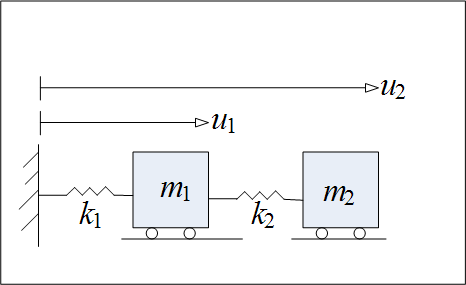
HW 5. CEE 247. Structural Dynamics. UCI. Fall 2006.
Nasser Abbasi
Solution
The idealized physical system is the following

The Lagrangian of the system is

Now apply Euler equation on the Lagrangian to obtain the equation of motion
for each degree of freedom. Given
 the equation of motion for
the equation of motion for
 is given by
is given by

Hence the equation of motion associated with
 is given by
is given by
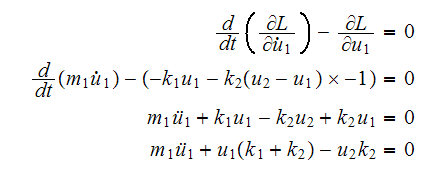
And the equation of motion associated with
 is
given by
is
given by
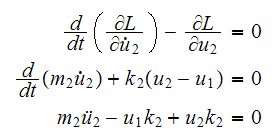
Hence the equation of motions are

Hence the overall system EQM can be put in a matrix form as follows

Notice that the mass matrix
 and the stiffness matrix
and the stiffness matrix
 are symmetric. This will always be the case for conservative systems.
are symmetric. This will always be the case for conservative systems.
Equation (3) can be written as

Now assume the solution is given by

Substitute (5) into (4) we obtain

Since
 we divide by it and obtain
we divide by it and obtain

Factor out


To have a non-trivial solution for the motion the above implies that the
determinant of
 must be zero. Hence we need to solve
must be zero. Hence we need to solve

Let
 ,
and expand the matrices and rewrite we obtain
,
and expand the matrices and rewrite we obtain
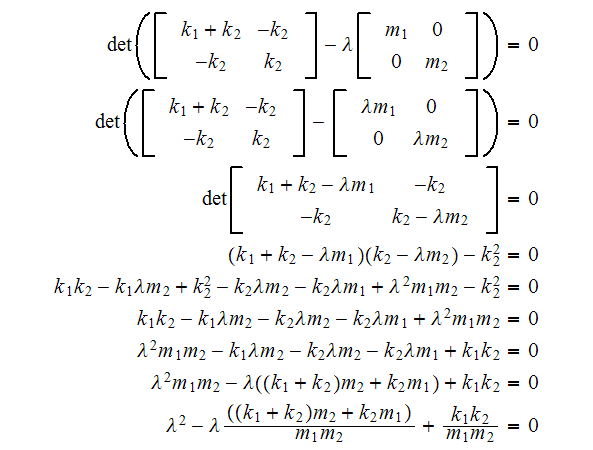
Now find the numerical values for
 and plug into the above equation to find
and plug into the above equation to find



and


Hence eq (6) above becomes

Hence

Hence this is now in standard quadratic format, solve for

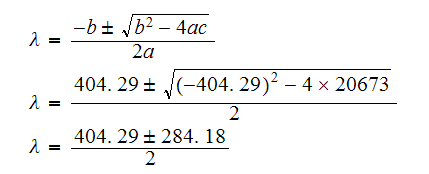
Hence

and

Since
 then
then

and similarly

Now to find the eigenvectors, since

Then

For the first eigenvalue
 the above becomes
the above becomes

From first equation we obtain

Hence

Hence we choose the first eigenvector to be

For the second eigenvalue


From first equation we obtain

Hence

Hence we choose the second eigenvector to be

Conclusion



Answer
First deterrmine the stiffness and the masses.

I wrote a Mathematica program to solve this. This is the result, and below that I attach step by step run of the program